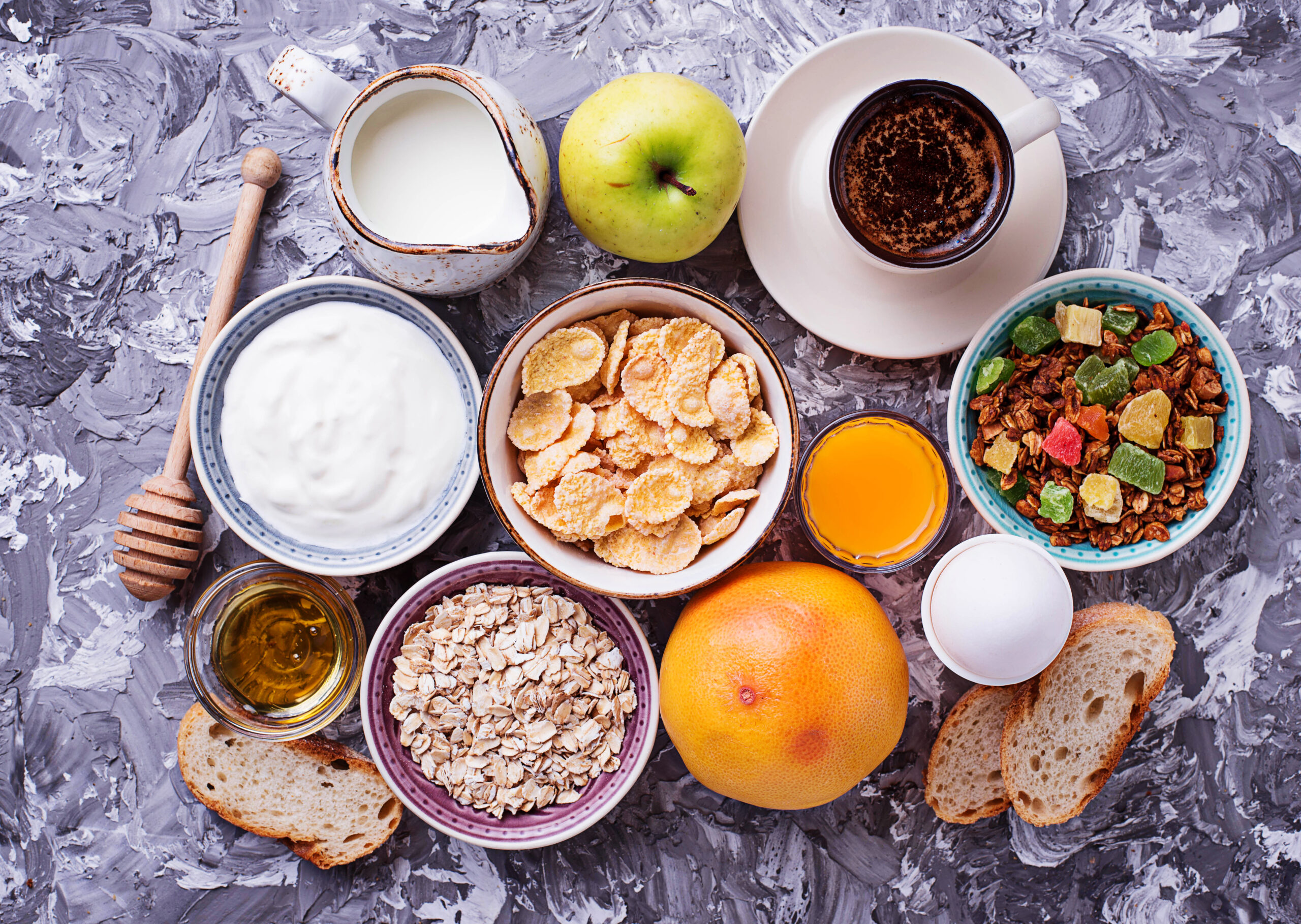Back in the 80s, people were pretty unaware of this problem. I was interviewed by the BBC World Service for the launch of my second book (1986), in which I stated that pretty well everybody has a food allergy. Dear old Nancy Wise, who conducted the interview, clearly didn’t quite believe me. Just before we went on air, she had sent a roving microphone reporter out onto the streets of London to stop people randomly and ask!
She was astonished to discover that 19 out of 20 people put on the spot admitted to having one or more foods that disagreed with them. Replies would be along the lines of, “I don’t eat chocolate, because it gives me a headache. But I don’t have any food allergies.” Or “No I don’t have a food allergy but I avoid onions because they make my joints swell and ache.”
Nancy got the point immediately and off we went!
It is common, indeed you might even say that bandit foods are the norm, rather than unusual. The trouble is, most people think of the rare and dangerous exceptions, such as peanut allergy, which might result in an emergency visit to ER and a terrifying near-death experience (anaphylaxis).
Most food allergies are not obvious and indeed may be what we call a “hidden food allergy”, which we’ll come to in a different tract.
When to Suspect That Foods Might Be Disagreeing With You
Let’s start with another of my famous Scott-Mumby maxims: if you do not leap out of bed every morning, bouncing with abundant vibrant energy and eager to get the day’s work done, you are not well!
Not 100% well.
There are many reasons why you might not be hitting that particular bar, but bandit foods are by far the most likely cause. Now this all leads me to an absolutely KILLER Scott-Mumby question; probably my number one question in medical practice… Do you ever have good days (symptom-free days)?
If so, you can always be well all the time; it means there is nothing missing or broken; no deficiencies; etc. Great news! You can always be at least as good as you are on your best days. Patients found it comforting when I told them that.
Look at it this way: if you feel great sometimes and not others, it isn’t cancer, or a deleterious infection, parasite overload or a degenerative disease. Conditions like these don’t come and go—well on Tuesday, feel ill on Thursday, fine again by Saturday and then down again for another two days—is a classic pattern for a food allergy. Actually it’s the pattern for any intermittent trigger, including chemical sensitivity, stress overload and food allergy.
Again, the bandit food problem can be hidden and unsuspected. We’ll look another time. But the principle holds good.
Now there is a slew of symptoms that will tip you off that food might be the problem.
• Bloating and flatulence
• Food binges
• Food cravings
• Overweight, underweight or wildly fluctuating weight (gaining a few pounds in a day)
• Symptoms actually come on while eating (duh!)
• Symptoms after food (falling asleep, chills, sudden rapid heartbeat)
• Feeling unwell without food (food addiction)
• Feeling tired, crabby or very lethargic on waking
Please note that irritable bowel disease (IBS) so-called is NOT a disease; it’s a symptom! They call it a disease because they can’t or won’t get to the bottom of it and solve the real problem! Same for migraine, it’s not a disease; it’s a symptom of something deeper.
How do I know? Simple: if giving up a food clears up the problem, it is not a disease. There is nothing wrong with the patient. Nothing broken, dysfunctional or missing!
Then Food Addiction
It astonishes people, that a food addiction can mean an allergy. People get hooked on the very food(s) that make them sick? But it’s true!
One of the questions above puzzles and intrigues people: how can waking up feeling lousy (feeling like death warmed up first thing in the morning is an amusing English expression) mean food addiction. But look! By 8.00 am in the morning you may have been off food for 10 – 14 hours. That’s enough to set up withdrawal symptoms!
Nothing is more characteristic of addiction than withdrawal symptoms. Indeed, that’s the very definition of addiction. Think about coffee “addicts”; I’m sure you know a few, even if you are not one. This person needs coffee every couple of hours. They are always at the drinks machine. And I do mean NEEDS coffee. If they go without for more than a few hours, a terrible headache sets in, enough to ruin the rest of the day.
That headache is a withdrawal symptom, just like heroin or tobacco, plain and simple.
What happens is that the patient (typically) muddles around in their robe to prepare some breakfast: toast or wheaties, cornflakes, milk, tea or coffee and sugar. One or more of these items fixes the withdrawals, winds them up and within an hour they feel better and get to grips with the day ahead!
If that’s a familiar scenario in your house, beware! One of more of you are playing with bandit foods. It’s not just that it will slow you down in the morning but lurking in the background are headaches, arthritis, dysbiosis, heart disease, even dementia. You don’t want to go there.
Feeling rotten first thing is just a staging on the way to something far worse. You don’t need to see a doctor or get labs to know that.
But do what I tell you and it will be gone within a week.
So What To Do?
Your first tool in trying to work out your private ME diet is a food diary. You can buy “food journals” online. But it’s a simple device you can make for yourself, just pages in any notebook. Rule 2 columns and on the left side, write down everything you eat and drink; that includes snacks, candy, coffee and anything else you have between meals. On the right side write down any symptoms, however mild.
 https://experiencelife.lifetime.life/wp-content/uploads/2021/02/Food_Journal.jpg
https://experiencelife.lifetime.life/wp-content/uploads/2021/02/Food_Journal.jpg
You should include supplements and any other health formula you take. I had a lady once, very ill; it turned out she was reacting to potato shavings in a well-known multi-vitamin. OK, potato and/or rice shavings (used as a compacting filler) are better than yucky corn starch for most people—but not her!
Make a note of the time for every entry; it is important to be accurate. In other words don’t write down a symptom before eating, unless it was present before eating. A reaction coming on BEFORE a food could not, logically, be caused by that food. On the other hand, a mild unfamiliar or unwanted feeling AFTER eating, however trivial, might be a clue that one of the foods you ate was not suiting you.
Noting the exact point when symptoms started could be important, even if it was mild at first and then many hours later when you felt really rough. Get it?
Note foodstuffs, not “foods”. In other words what actual food items did you eat, not how were they concocted (recipes). Here’s a startling observation I made often to patients: bread and whisky are the same thing to me—grains and yeast! A powerful whisky reaction can put a wheat-sensitive person in bed for days! Bread, cakes, biscuits, pastries, pizza, pasta, muffins, cookies and pancakes, are all wheat products, so look out for that.
Something else that stumbled people often was not noticing that certain foods are essentially the same thing (or very similar). Thus chicken and egg; pork and bacon; beef and “ham”burger. I’ve had people say, “I’m allergic to pork.” “Do you eat bacon?” “Oh yes… Aah!”
Warning: a food diary does tend to make you very conscious of food, which is probably a good thing in the short term. However, taking the long view, try to avoid the exercise making you too introverted about feelings and symptoms, otherwise it can start becoming an obsession. Many allergy patients become so consumed by anxiety about what they are eating that they cannot eat or socialize normally. Food allergy investigations, as described here, are merely a tool not an end and should not become a way of life, otherwise family and friends will feel excluded and that in turn leads to rejection.
Patterns
You may begin to notice certain patterns appearing. Look for them carefully. For example headaches always seem to come on a Monday. I had a young schoolgirl who had migraines every Monday and didn’t want to go to school. Nobody really believed her; they assumed she was trying to get out of studies. The culprit turned out to be a major vegetable which always featured in the Sunday lunch!
Another case I recall was a man who had a bad headache pretty well every evening after work. He would come home, shot of whisky, throw back a mouthful of peanuts and go switch on the TV to relax. Within an hour he had his unpleasant symptom. Obviously, the whisky, right? Wrong! It was the peanuts!
Maybe you are better at weekends, better on vacation, or always ill after you go round to Amy and Jim’s place for dinner?
It can be laborious but remember, that’s all Luigi Cornaro had to go on. With enough persistence and determination, you can usually work out where the problems are coming from.
And there are fuller, more complete ways of working. Certain tests can be helpful. And if you want a comprehensive self-help guide as to how to do this, you could do no worse than get my own manual: One Diet For Life,I consider it a journey of a lifetime, that everyone undertake, at least once.
Now all this is not to say that everything is a food allergy. Lord no. But diet adjustments are a great place to start because there is usually some kind of beneficial result and they are relatively easy to do. If you can feel much better just avoiding, say, milk or wheat, that is far easier than battling against multiple environmental shocks and stressors, though I am on record (a TV interview) as saying that divorce could be a good cure for food allergy and intolerance!
The reason is simple if you understand the overload principle: avoiding even just one stressor, especially if it is an important one, may free your body defenses up enough so that systems can cope with the rest, without your help!
Give it a try if you do not bounce out of bed in the morning, revved and ready to go!
Good luck,Prof. Keith Scott-Mumby
The Official Alternative Doctor





